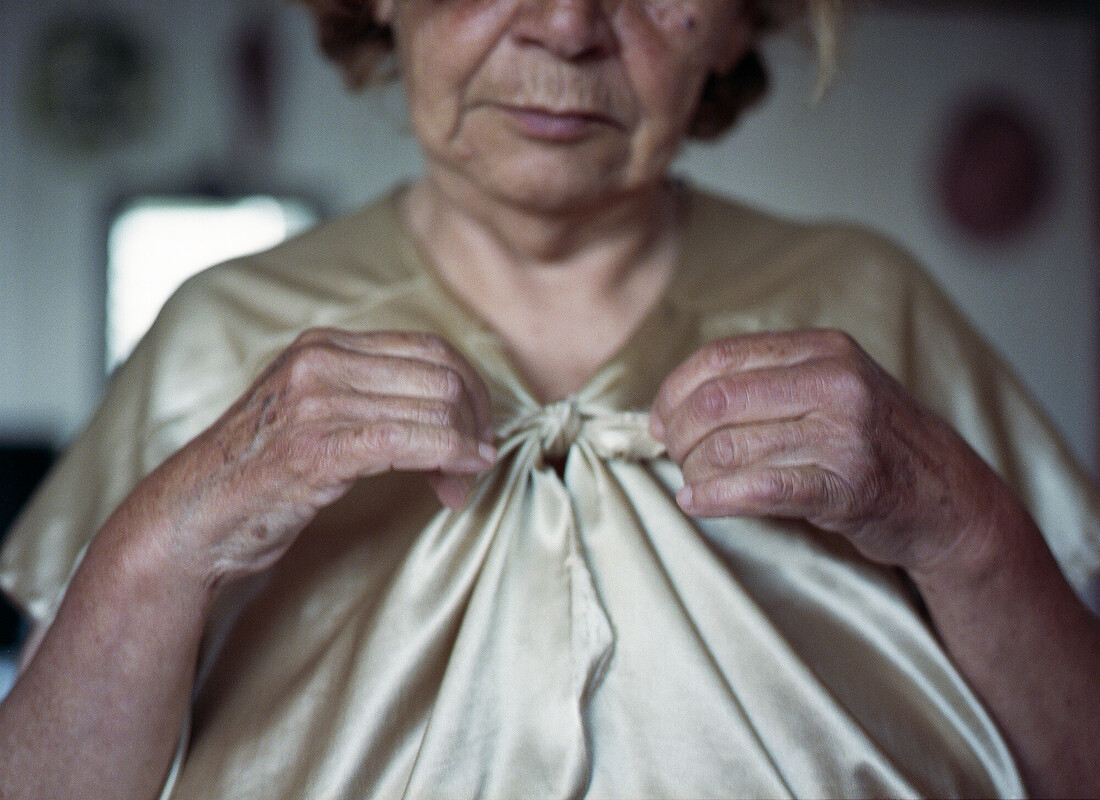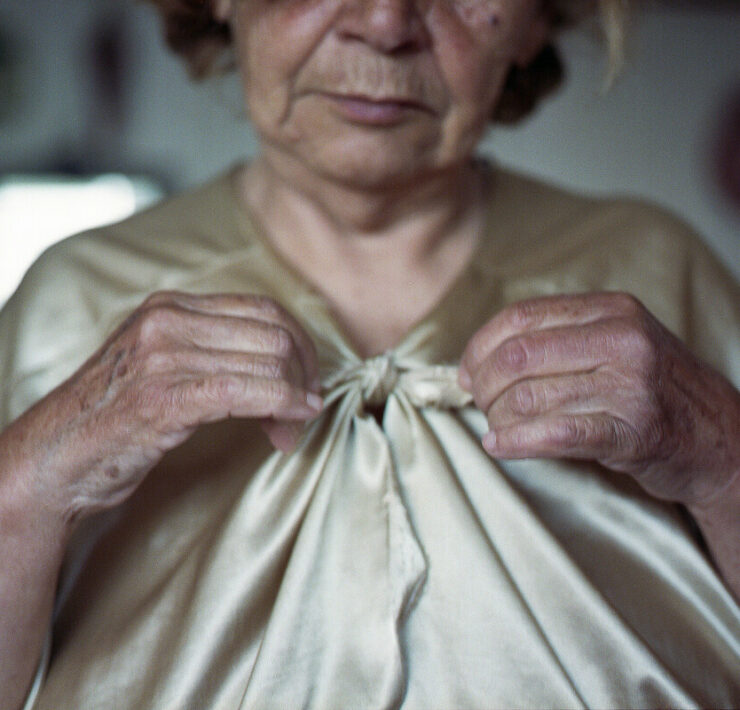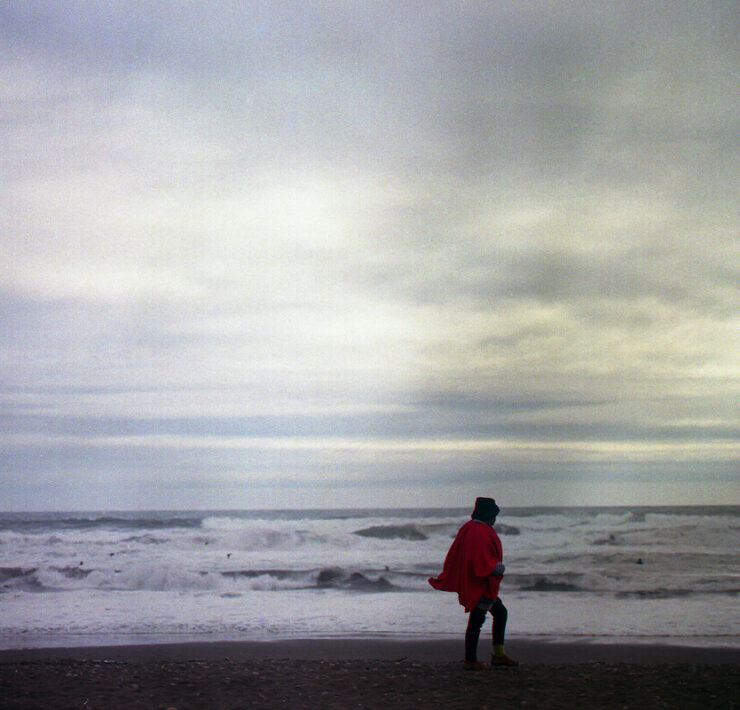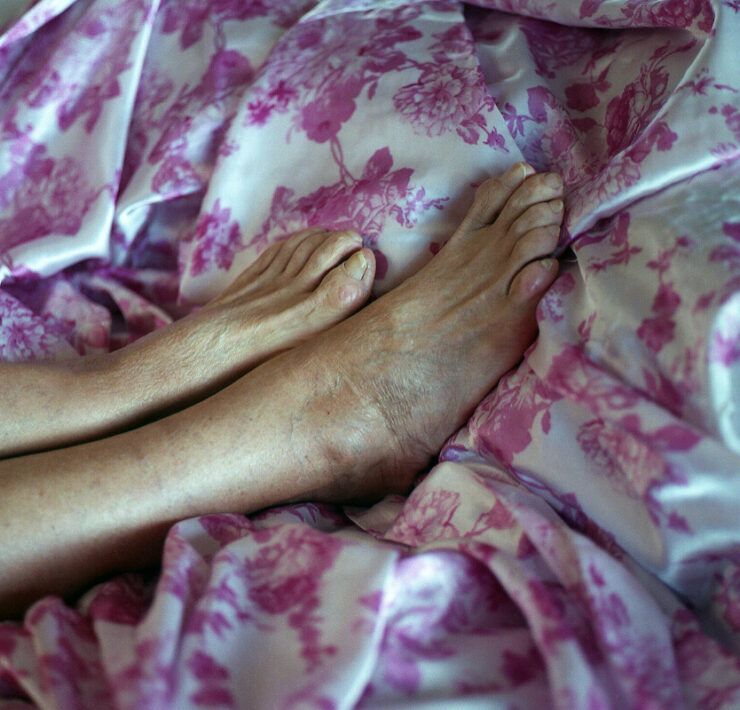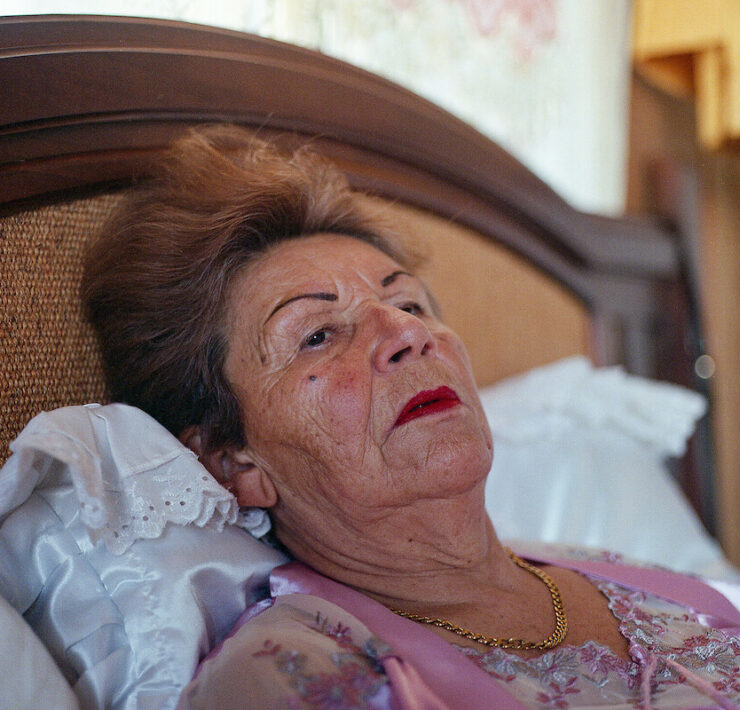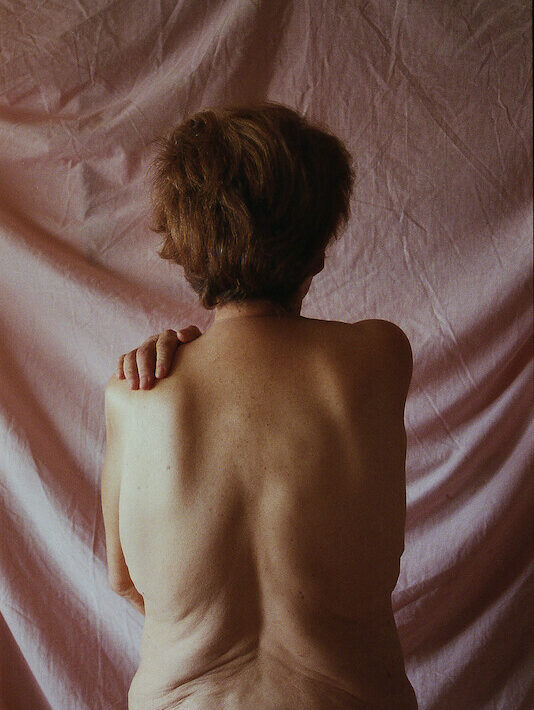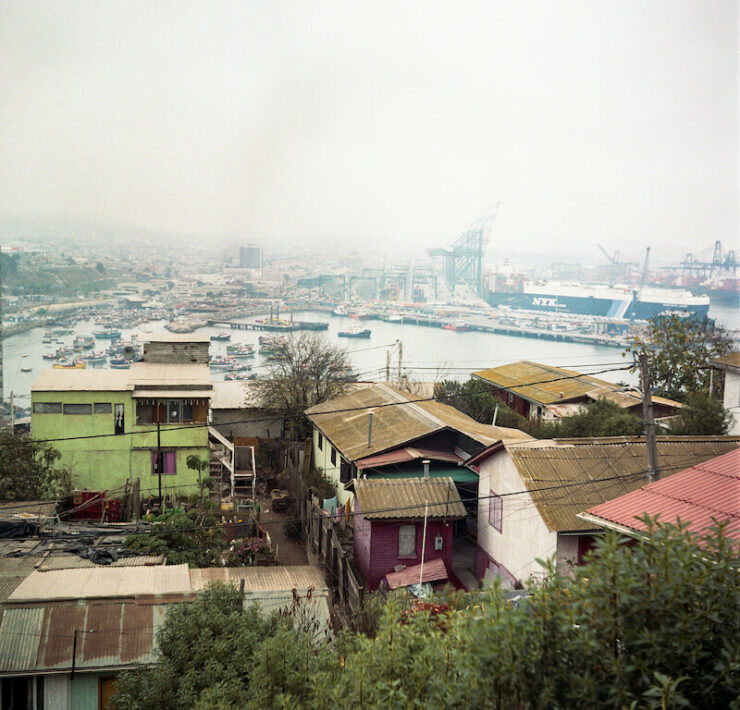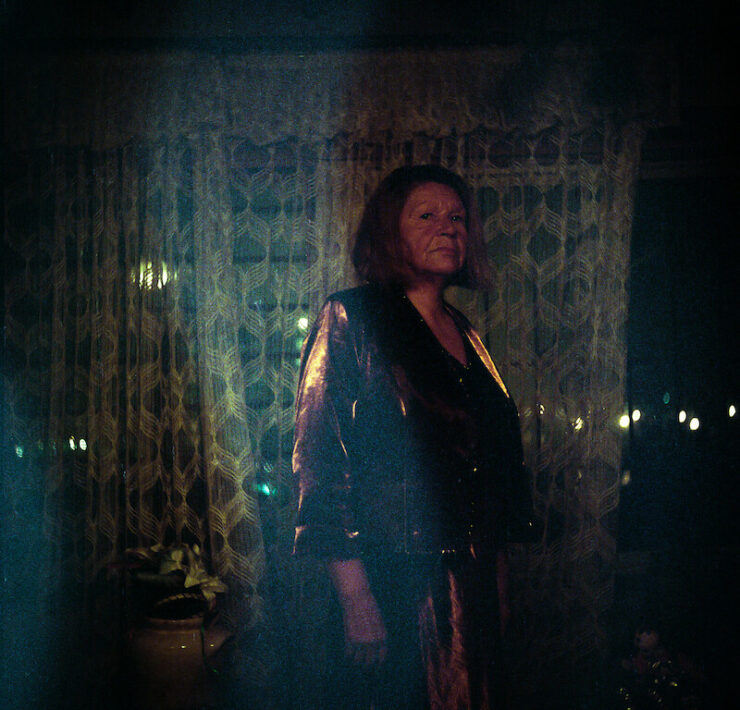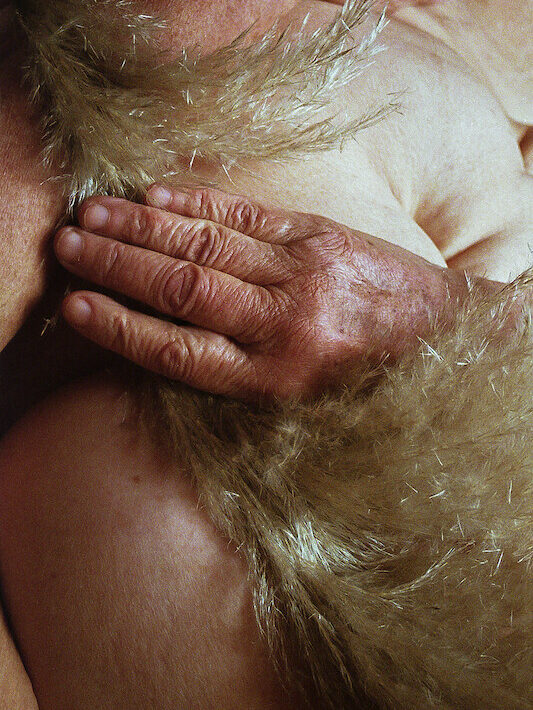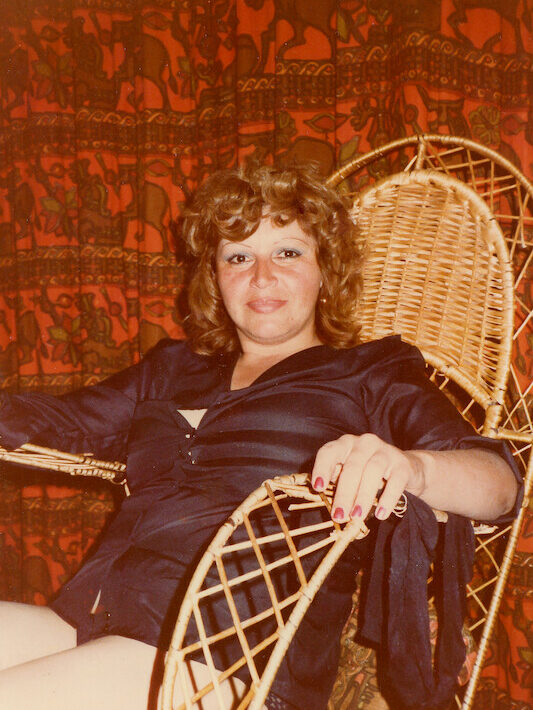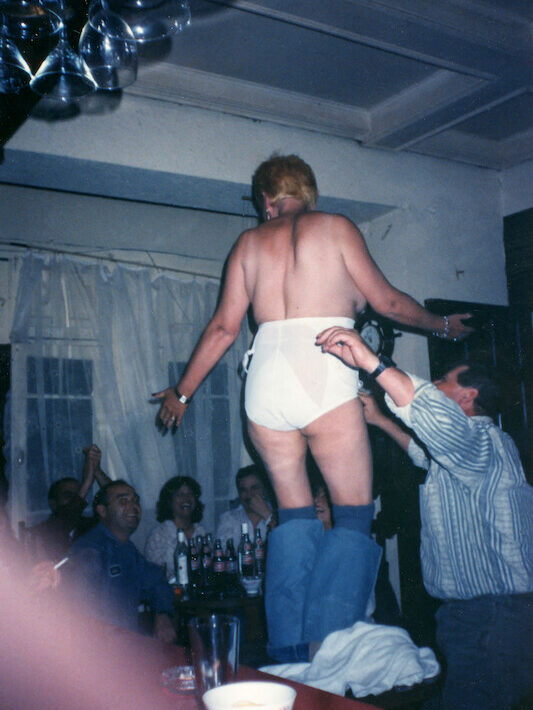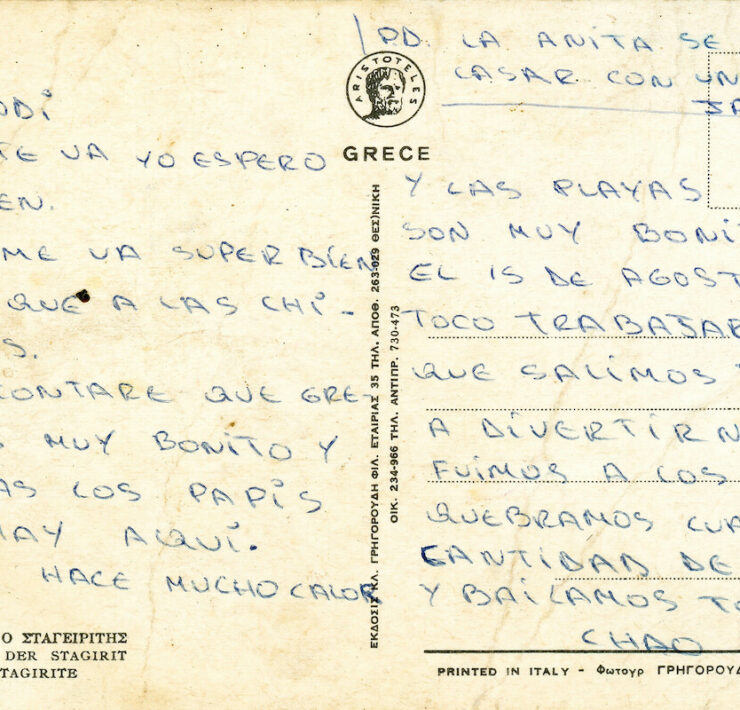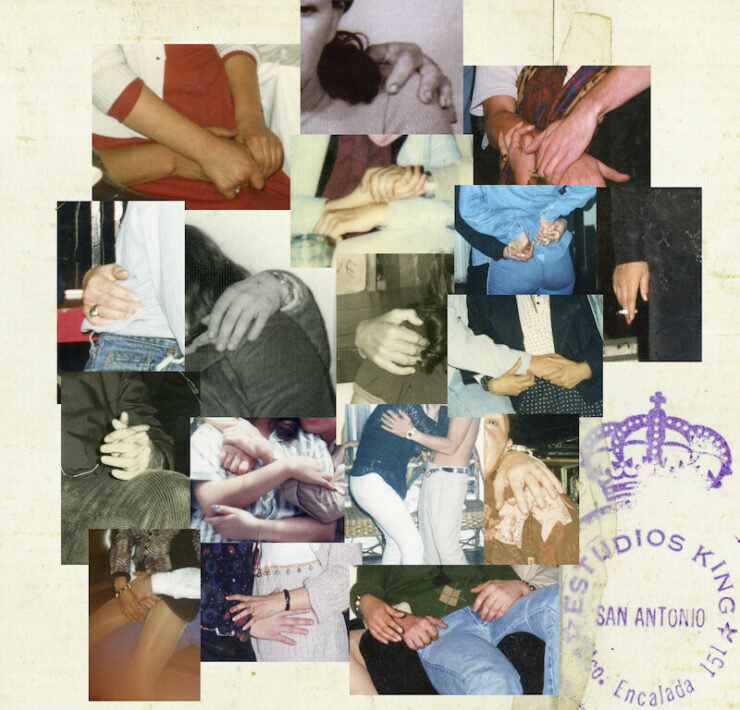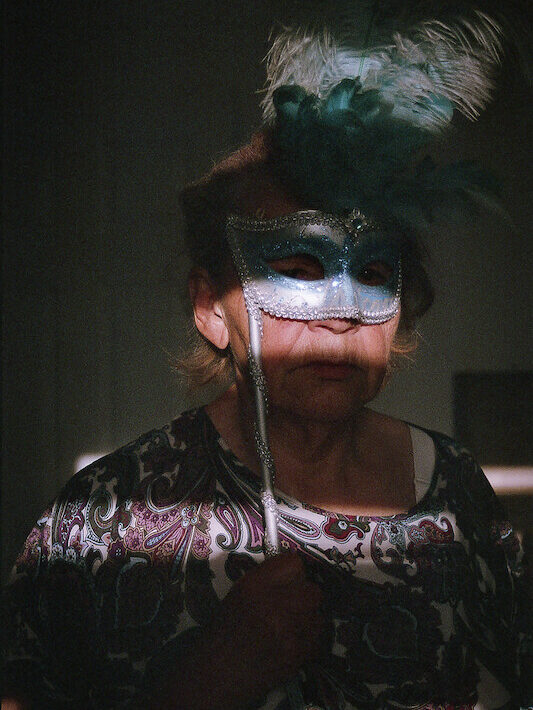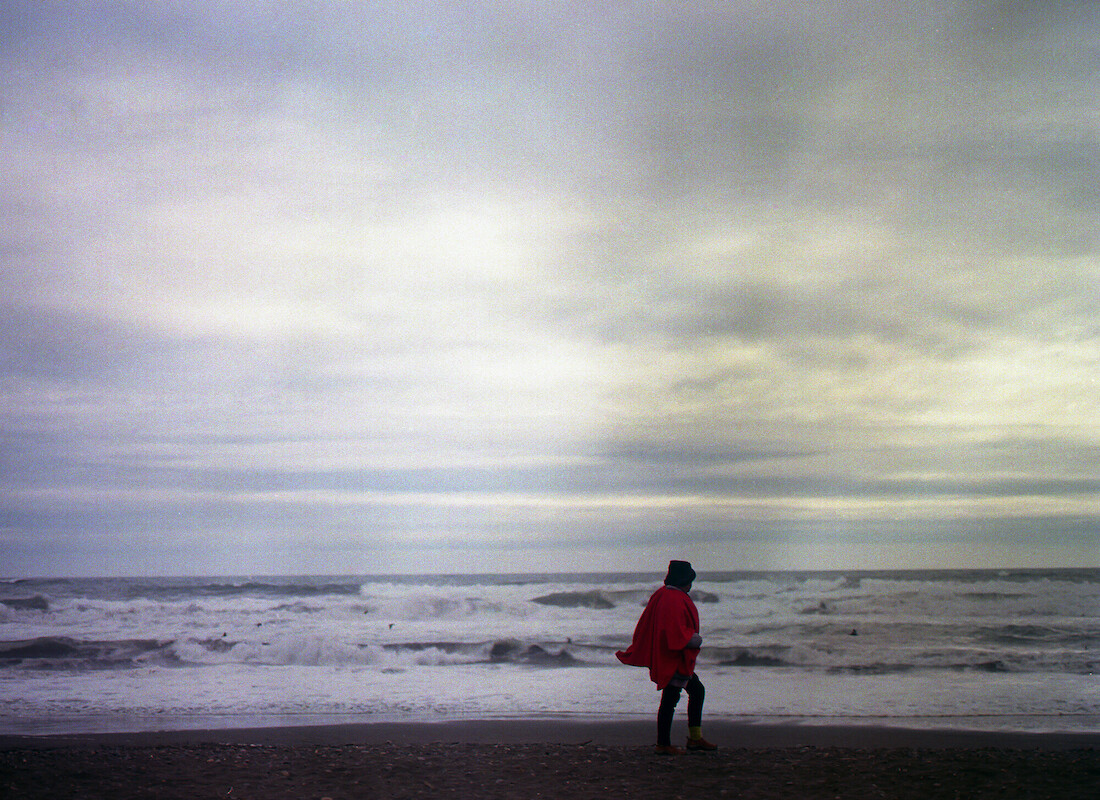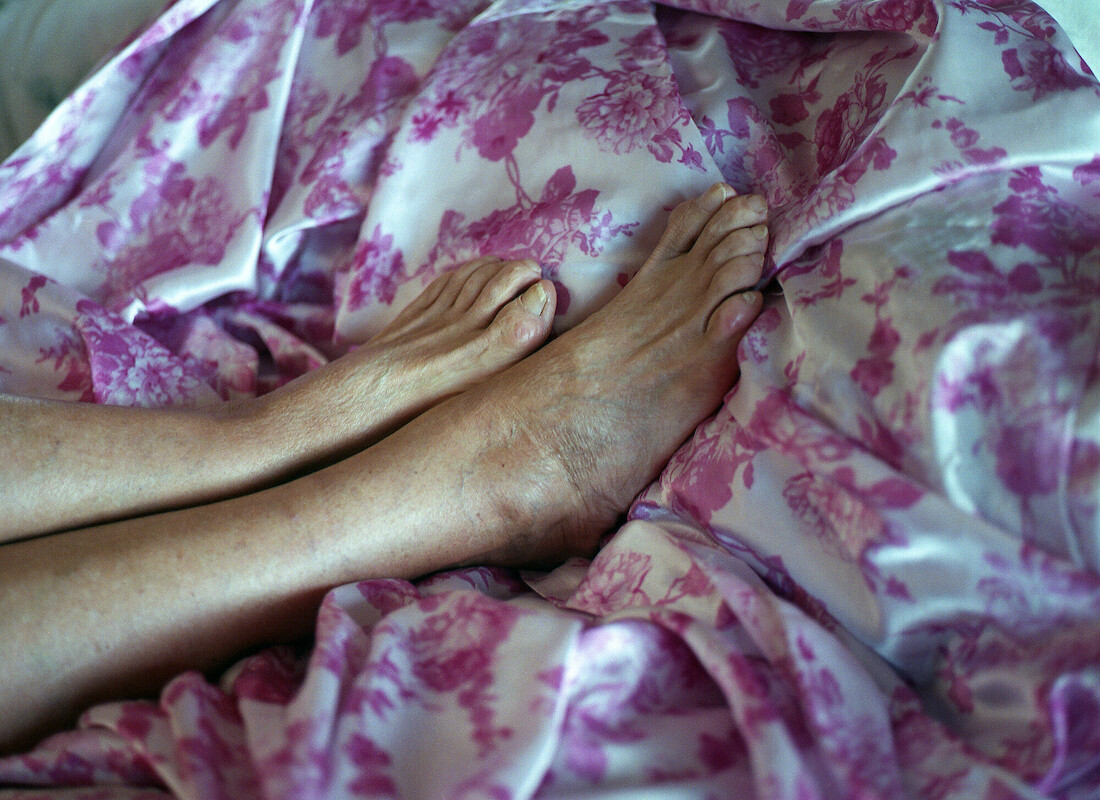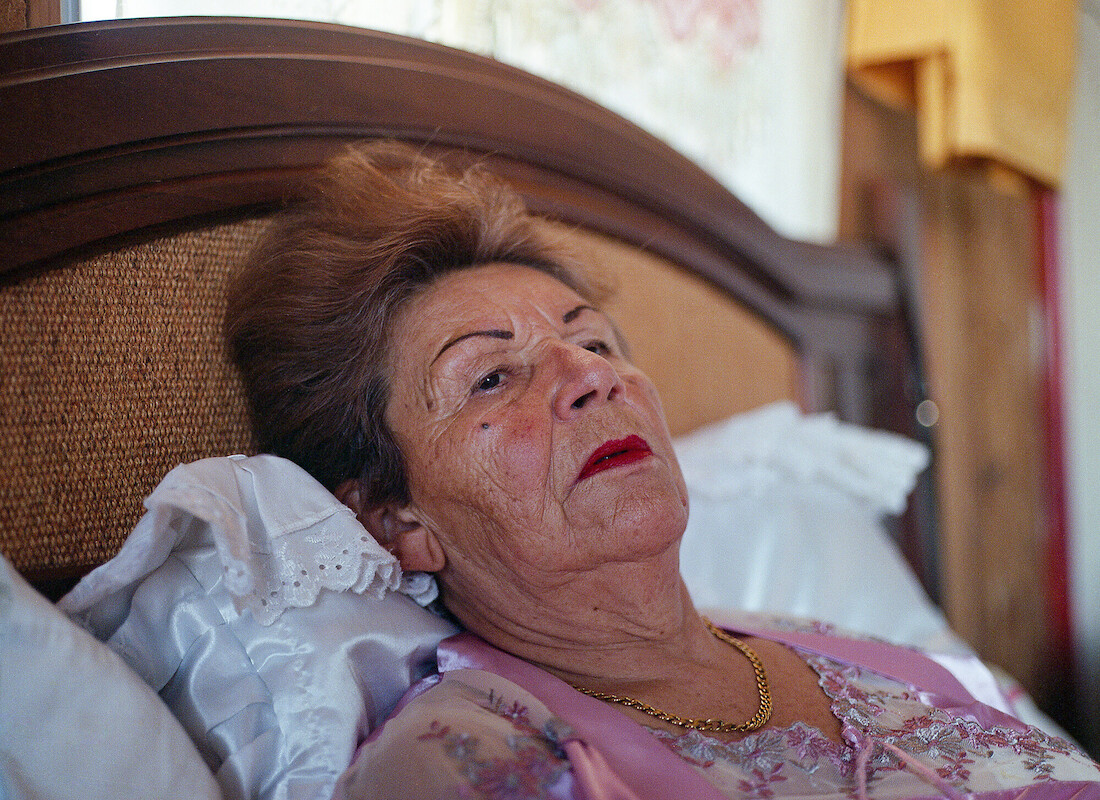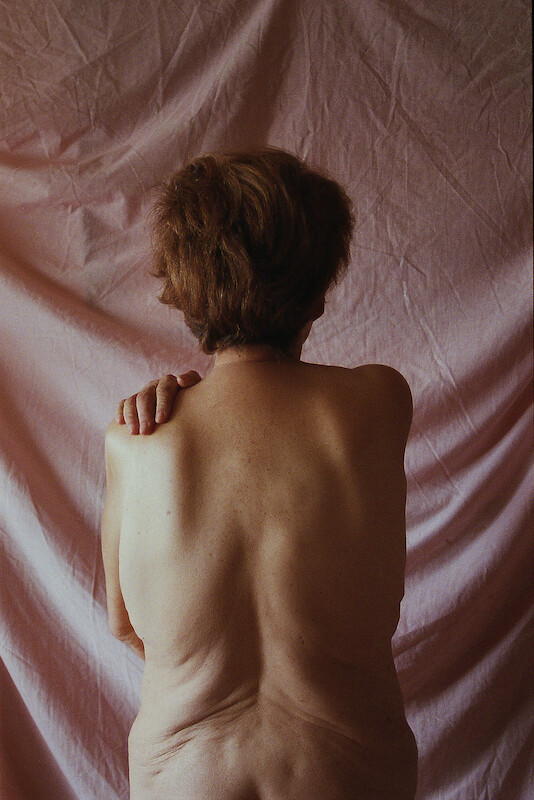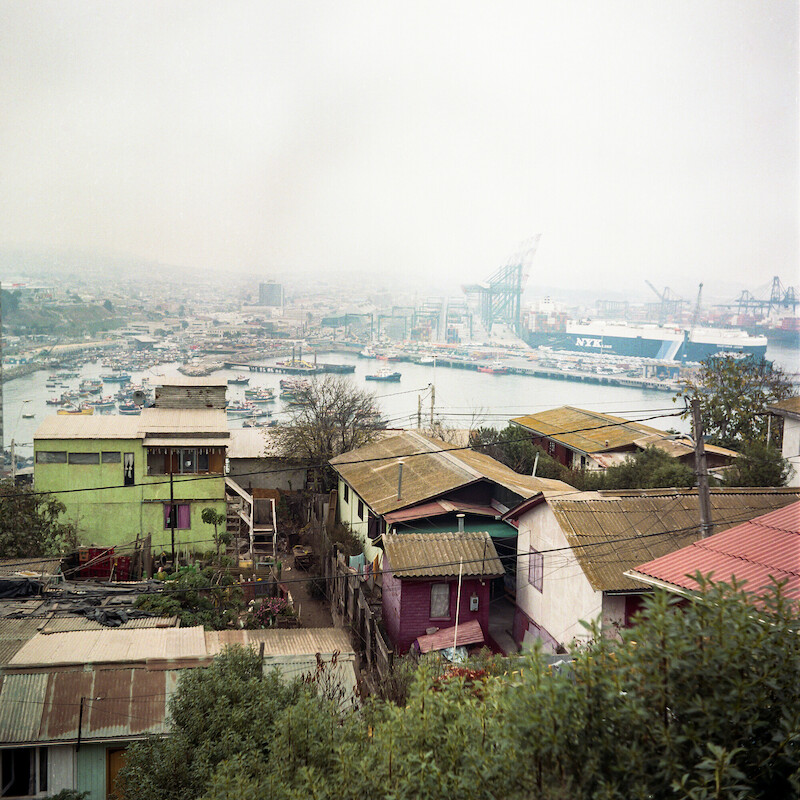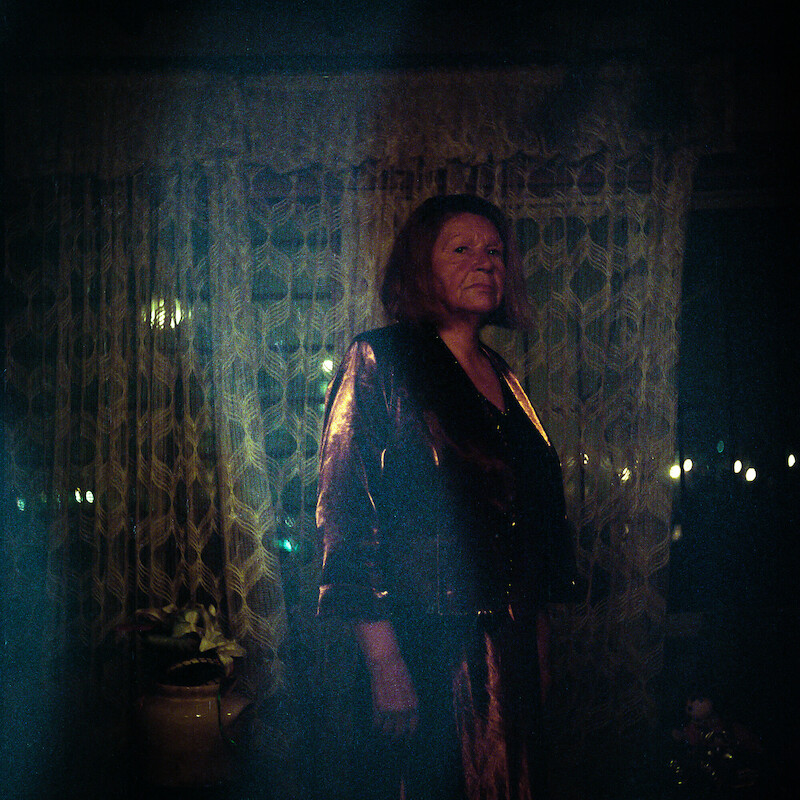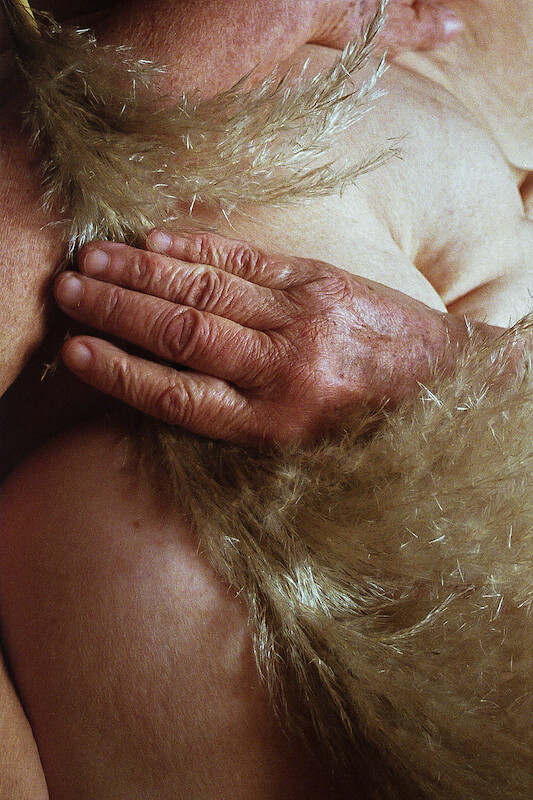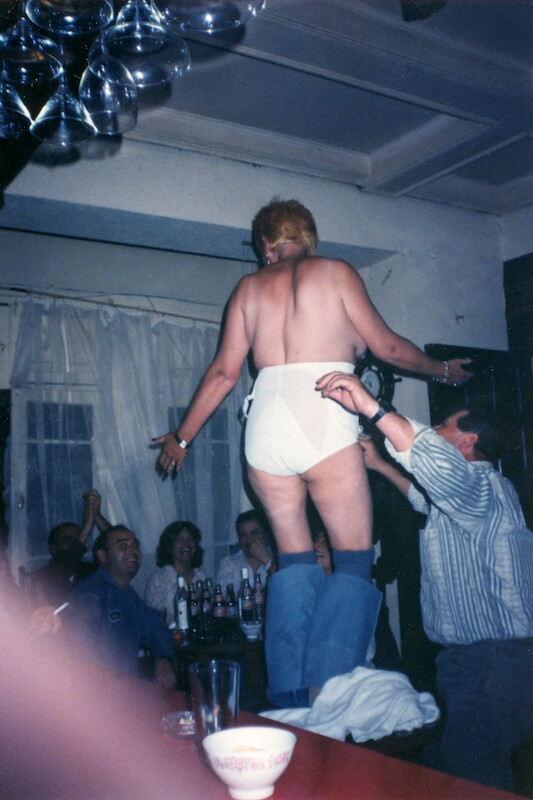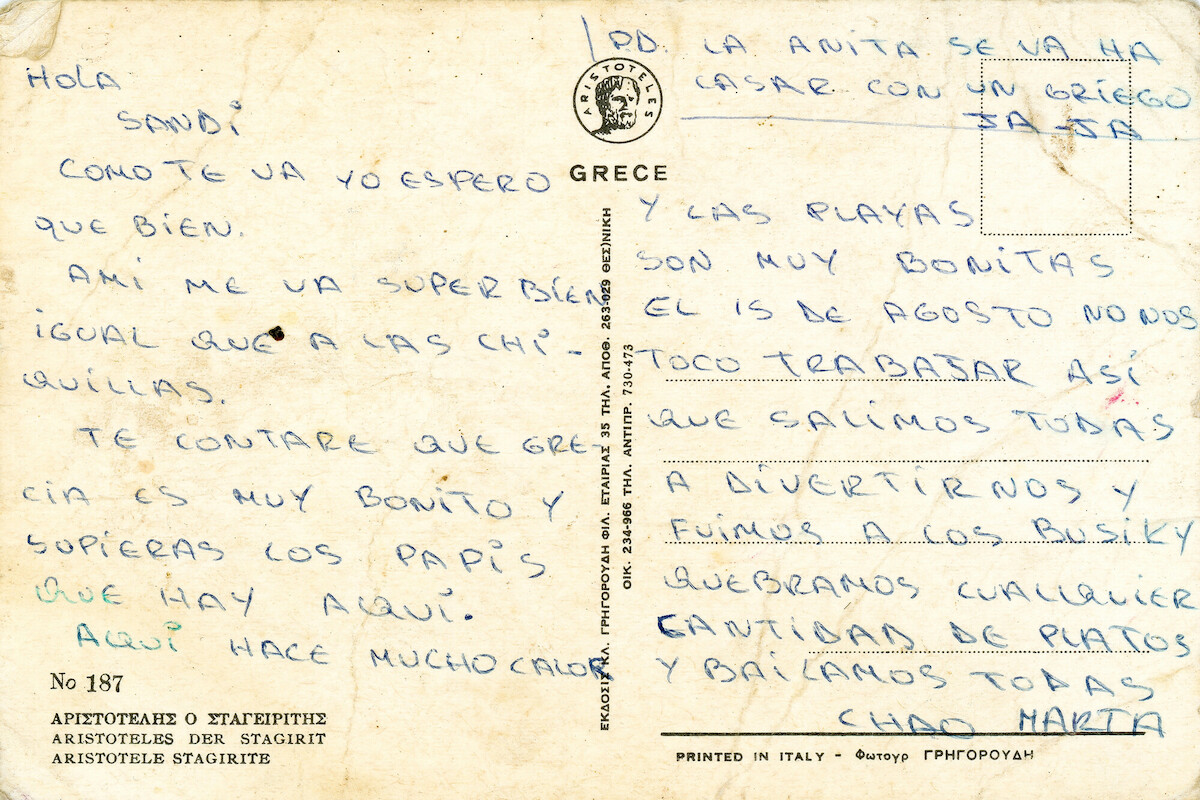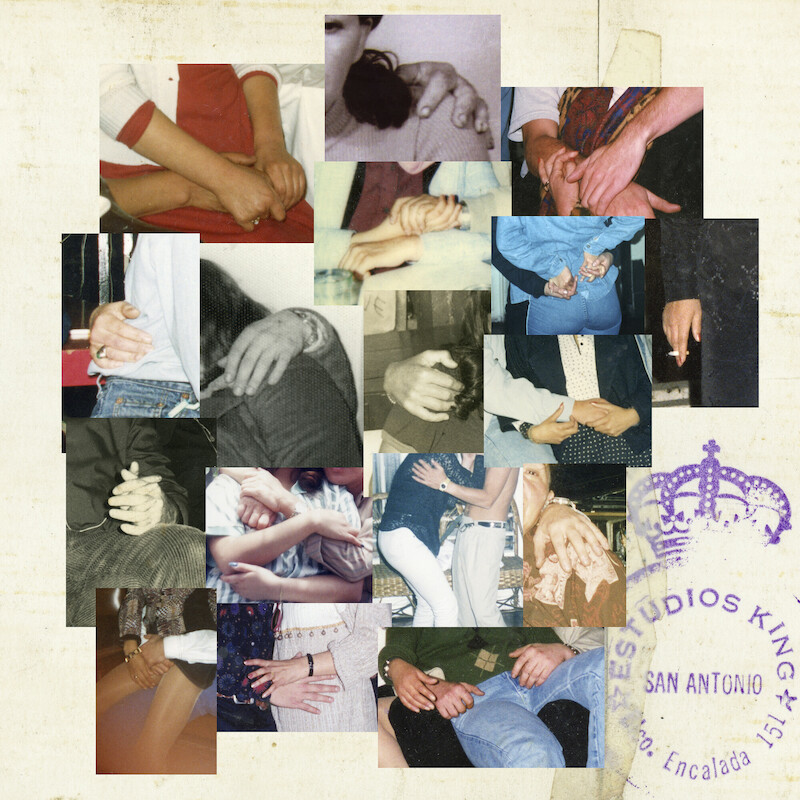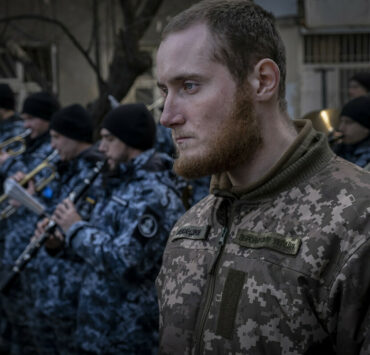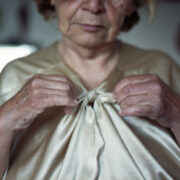
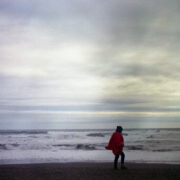
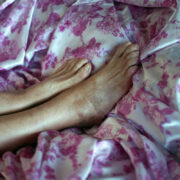
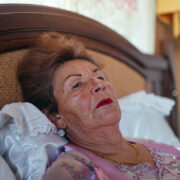 +10
+10 Sandy, the port’s Marilyn Monroe
By Loreto Vergara Gálvez
A photographic project that took place in the port of San Antonio, a territory that marked the life of Marilyn, the first artistic name of this story’s protagonist, that she later replaced with Sandy. This experienced prostitute, direct aunt of the author, worked in different tourist hotels that operated in this city from the 60s to the 90s.
“When the sun bursts the hues, the front door opens. High, pretentious white leather ankle boots were visible when the wind played in their favor by flapping the dress that covered them. Continue to the top. A golden mantle molded a robust and tall figure that combined with the delicacy of blond hair, like Marilyn’s, nestled on her shoulders. From afar her jewels expressed character to my imagination as a child. My Aunt Sandy is here!”
Sandy is the protagonist of this story. A story that, in this instance, will be told from the end of an oscillating journey, between rural and capital lands, which had as its destination the Valparaíso region, mainly San Antonio. A highly distinguished territory for its great relevance in folklore, revelry and customs between the 50s and 60s, in the midst of the golden age. This panorama influenced her decision to stay for the rest of her life in this romantic and delightful Buenos Aires postcard.
Located in a female circle with shades of complicity. Sandy, as she is known, set out to work as a sex worker in various “tourist hotels”, as she catalogs them, located in the port, a source of employment that allowed her to achieve the stability that she had been pursuing since her adolescence when she migrated from the eighth region, where she was known as Marilyn.
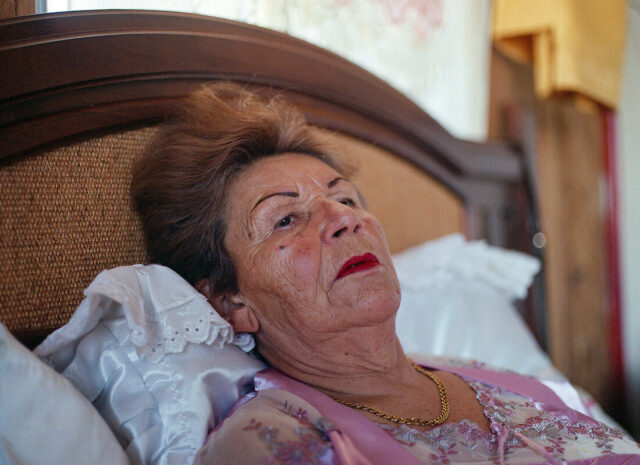
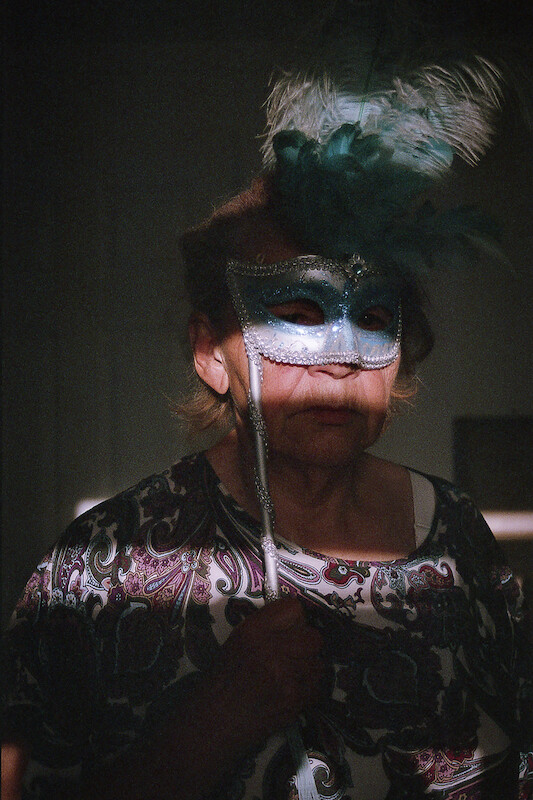
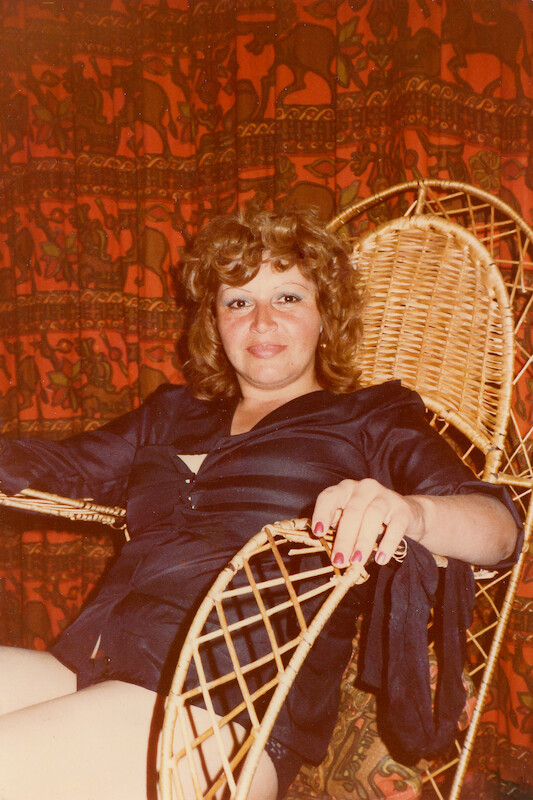
We imagine the “prostitute” as a disembodied woman, we know her existence, but we keep her isolated. We automatically victimize it and assume that all those who exercise it are being exploited by an unbreakable circle of violence, pigeonholing them into a single reality. However, the existing contexts in this plane are diverse. Likewise, the knowledge and deepening of this work becomes more complex since sex workers avoid sharing their experiences for fear of moral judgment, of being denounced, discriminated against, stigmatized, etc.
The years went by and the body grew old. Sandy, now 74 years old, contemplates her photographic archive in front of the window that overlooks the port where she breathes the immutable sea breeze. She constantly evokes in the places that she travels next to her cart selling empanadas, the thousand and one stories that she lived.
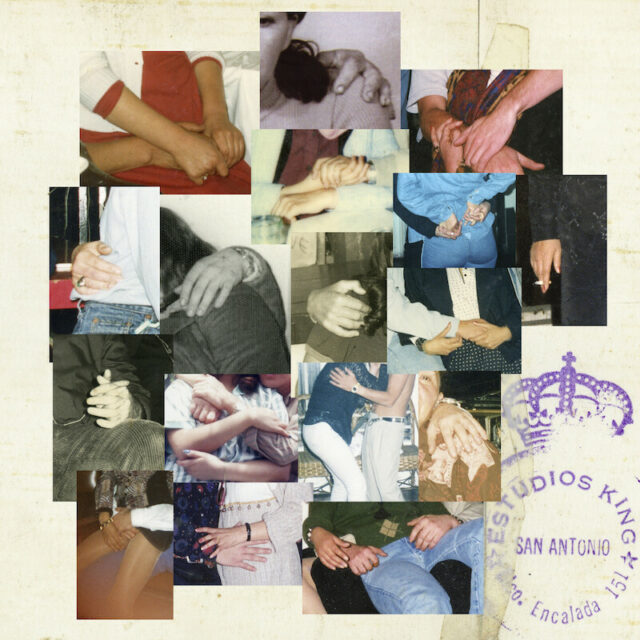
About Loreto Vergara Gálvez:
I began my professional studies in the Professional Photography career at the Arcos Professional Institute in Santiago de Chile (2009-2012). Later, I entered the Christian Humanism Academy University where I graduated in Journalism and Social Communication in 2018. Certainly, photography was the channel through which I began to narrate stories with which, in one way or another, I was involved. This is why a large part of my interests are focused on social issues that inescapably involve others. I have had the opportunity for the developed projects to be exhibited collectively and individually in different parts of the national territory. I am co-founder of EFFEM (Female Photographic Encounter) since 2019, a group aimed at generating instances of reflection, perception and appreciation among women, involving personal experience in the area of the arts, mainly photography through residences and meetings.
Gear:
Camera: Yashica-A, Mamiya 645, Nikon F90X. Lenses: 50mm , 80mm film: Portra 400, Kodak Ultramax 400, Fuji Xtra 400
Website:

